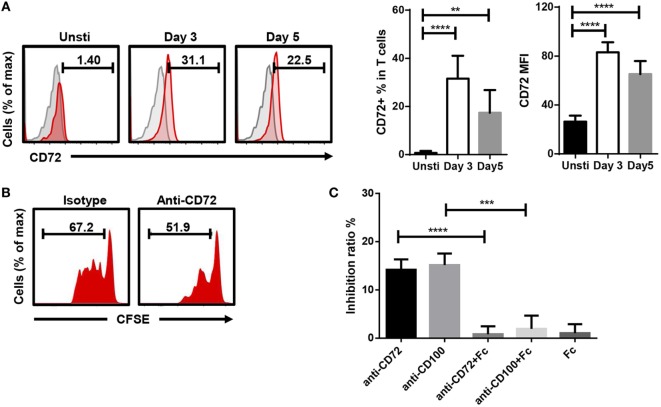Figure 4.
CD100–CD72 interaction is required for T cell proliferation. (A) CD72 expression increased on T cells after anti-CD3/CD28 stimulation. Gated on CD3+DCM− T cells, gray shadow represents isotype controls. CD72+ % in T cells and CD72 MFI (Geom. Mean) of total T cells were subjected to statistical analysis (n = 6, **P < 0.01, ****P < 0.0001). (B) 5 µg/ml soluble anti-CD72 was added into total peripheral blood mononuclear cell (PBMC) plus Dynabeads anti-CD3/CD28 culture system, Carboxyfluorescein 6 succinimidyl ester (CFSE) fluorescence on CD3 T cells was analyzed 5 days later. (C) The inhibiting effect induced by anti-CD100 or anti-CD72 (final conc. 5 µg/ml) was partially eliminated by CD72-Fc (n = 4, ***P < 0.001, ****P < 0.0001). The histograms are representative of three independent experiments. PBMCs from six individuals were included in the statistical comparisons.

